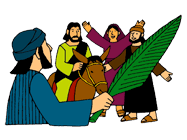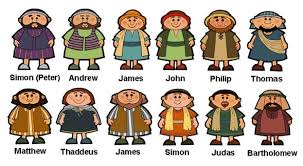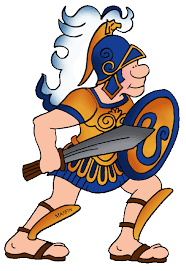Zechariah 11:2 – Wail, O cypress, for the cedar has fallen, for the glorious trees are ruined! Wail, oaks of Bashan, for the thick forest has been felled!
Welcome back, readers. In our last post we took a closer look at the cedars of Lebanon which are mentioned prominently in the scriptures. We discovered that the cedars could represent literal trees, national leaders (political and/or religious) or entire nations. 
The imagery of the trees found in verse one continues with the mention of cypress and oaks.
Notice that the prophet instructs the oak and cypress trees to wail. Because emotions/feelings and actions are ascribed to these trees, we know they are symbolic of humans. What group of people do they represent?
Because cypress and oak trees are considered inferior to the cedars of Lebanon, we would expect the people represented by them to be ‘inferior’ to the leaders in some manner.
The most likely interpretation is that these people are subordinate in power, rank and authority to the national leaders. In other words, the cypress and oaks represent the ordinary citizens of the country. These are the people who are told to weep and wail.
We know that the cause of their despair is the destruction of the forest of cedars (leaders). However, we again find that this event may be interpreted in more than one way.
Some scholars believe this prophesy should be seen as a warning to the common people regarding personal holiness. If God will not overlook the sins of the leaders, neither will he overlook the sins of the individuals within the nation. When the common folks see their leaders being judged, it is a warning for them to repent lest they suffer the same fate.
This is a sober warning, which is applicable in our generation too. It seems like many religious and civil leaders have been in the news recently because of moral failures. This is a reminder to ordinary citizens such as ourselves that nothing is hidden from God. Should we be engaging in any kind of moral sin, we must repent immediately. If we fail to do so, public exposure may come to us as well.
Another interpretation says that in the natural realm, the forest of cedars was a barrier of safety for the nation. When God withdrew his hand of protection and allowed the physical forest to fall, it was a sign that Israel’s defenses were gone.
At that point, no wall, gate, citadel or other physical defense could repel Israel’s enemies or keep them from breaching the strongholds of the nation. No place or thing would be spared; God was giving Israel’s enemies access to everything.
Therefore, the citizens of Israel should mourn because the destruction or downfall of their nation was only a matter of time. That downfall would include the loss of all their personal possessions, their families, their beloved temple, and their land.
Moreover, as we would expect, destruction of the temple signaled a break in the relationship between God and his people.
Thus, we find that the interpretation of this scripture could be either spiritual or literal. In fact, it could be both – once the leaders of Israel allowed sin to drive a wedge between them and the Lord, it was only a matter of time before that broken relationship manifested as destruction in the natural realm.
Zechariah 11:3 – The sound of the wail of the shepherds, for their glory is ruined! The sound of the roar of the lions, for the thicket of the Jordan is ruined!
The final verse in this short prophesy contains two separate statements, which basically reflect the same thing.
The first thing we notice about this verse is that the focus shifts from the wailing of the common people to the wailing of the shepherds. As you are probably aware, in both the Old and New Testaments, the civil and religious leaders of God’s people as referred to as shepherds:
Zechariah 10:3 – “My anger is hot against the shepherds, and I will punish the leaders; for the Lord of hosts cares for his flock, the house of Judah, and will make them like his majestic steed in battle.”
I Peter 5:1-3 – So I exhort the elders among you, as a fellow elder and a witness of the sufferings of Christ…shepherd the flock of God that is among you, exercising oversight, not under compulsion, but willingly, as God would have you; not for shameful gain, but eagerly; not domineering over those in your charge, but being examples to the flock.
The national leaders are not upset over a minor complaint or inconvenience. They are crying out in deep distress and bitter anguish because they have been judged; they either lost everything, or they are about to. This includes their authority/positions, honors, homes, riches and security. In the day of judgment, everything would be stripped from them.
Let’s stop and ask this question: Why are they being judged?
As shepherds, these leaders were charged with the duty of taking care of the ‘flock’ or common people. The civil leaders were to rule in such a way that God’s laws were followed and his name honored. They were to deal fairly with all people. They were especially charged with making sure that people did not oppress or take advantage of widows and orphans.
Deuteronomy 27:19 – Cursed be anyone who perverts the justice due to the sojourner, the fatherless, and the widow. And all the people shall say, ‘Amen.’
While they were to be compensated for their work, the leaders were not to enrich themselves at the expense or undue burden of the people they served. They were to shepherd God’s people with the understanding that they served the Lord, who is the ultimate shepherd of his people (John 10:11&14, Psalms 23:1, Psalms 28:9, Ezekiel 34:15, etc).
Similarly, the religious leaders of the nation were charged with keeping the law themselves (being a public example), teaching God’s ways to the rest of the nation, and righteously running the temple. 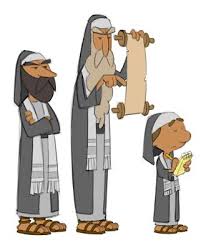
However, it is clear from this passage that the leaders became corrupt, forsaking their duties in order to enrich themselves and satisfy their own lusts.
So far in this portion of scripture the leaders are described as cedars of Lebanon – they are majestic, useful and important (or they had the opportunity to be). Next, they are identified as shepherds – those given the responsibility of guiding God’s people. Finally, the Lord calls them roaring lions.
Interestingly, shepherds are supposed to protect the flock from the lions who seek to destroy or ‘eat up’ the sheep. This was a task that David performed many times before becoming king:
I Samuel 17:34-35 – But David said to Saul, “Your servant used to keep sheep for his father. And when there came a lion, or a bear, and took a lamb from the flock, I went after him and struck him and delivered it out of his mouth. And if he arose against me, I caught him by his beard and struck him and killed him.”
Instead of being good shepherds, the leaders of Israel would become lions who preyed upon the people they were supposed to protect and serve. They would use their positions of authority to take advantage of the people for quite some time. But eventually, God would ‘ruin the thicket of Jordan’ which would cause these corrupt leaders to roar with anguish. What does that mean?
Along the banks of the Jordan River, there are areas of dense shrubs, trees and thickets which are the habitations and resting places of lions. There the animals live in peace and security, proudly and boldly patrolling their territory, stalking unsuspecting prey at will. 
Just as these lions would roar in fury and dismay if their habitat (and lifestyle) is destroyed, so the religious and civil leaders of Jerusalem will be struck with desperation and rage when God removes his hand of protection from them, and they lose everything.
By way of conclusion, we can say that in all three examples (trees, shepherds, lions) the implication is that at some point between the days of Zechariah and the return of the Lord, the leaders of Israel would profane/abandon the duties they had been given and become corrupt. The end result of their sin would be the oppression of God’s people.
But God would eventually intervene, pronouncing judgment against the corrupt and disobedient rulers. This judgment would also result in the fall of the nation. Once these rulers have been deposed, God would raise up a new, righteous shepherd to lead his flock:
Jeremiah 49:19 – Behold, like a lion coming up from the jungle of the Jordan against a perennial pasture, I [the Lord] will suddenly make him run away from her. And I will appoint over her whomever I choose. For who is like me? Who will summon me? What shepherd can stand before me?
With this in mind, can we find a time in the history of the Jews when events similar to those described here have come to pass?
We can certainly point out multiple possible fulfillments in the history of Israel. However, the most obvious example occurred during the incarnation of Christ. 
In the New Testament, Jesus goes into great detail describing the corruption of the Jewish leaders (both civil and religious) in Matthew chapter 23.
In this passage, he tells his followers not to follow the example of their leaders, because they say one thing, but do another. In fact, Jesus says that they tie up heavy burdens and place them upon the shoulders/backs of those under their leadership, while they themselves will not live by the same rules.
These leaders are also described as proud and boastful, seeking honor and praise from men instead of seeking to please God. Jesus ends by pronouncing several ‘woes’ upon them, calling them blind guides. (If you have a few minutes, read the entire chapter of Matthew 23. You will find that Jesus’ description of the religious leaders of his day are a perfect example of the prophesy of Zechariah 11:1-3).
In Matthew chapter 7, Jesus describes these same leaders as ‘ravenous wolves’, which would be very similar to a lion:
Matthew 7:15 – Beware of false prophets, who come to you in sheep’s clothing but inwardly are ravenous wolves.
And of course, as you well know, not long after the death and resurrection of Christ the Christian Jews were warned to flee from Jerusalem. After they left, the Romans turned on the remaining Jews (those who had rejected Christ), slaughtering most of them while burning and desecrating the temple.
Thus, just as Zechariah foretold, the disobedient Jewish leaders eventually lost everything - their authority/positions, their honor, their families, their luxuries, their money, and even their lives.
Summary: Verse 1-3 are a complete word from the Lord which is separate from the rest of this chapter. The overall concept is that the leaders of Israel fall into apostasy, failing in their duty to lead, guide and protect God’s people. They are rebellious/disobedient to the commands of God. As a result, the entire nation falls into sin. Eventually, God withdraws his hand of protection, bringing judgment upon the leaders and the nation.
This word of the Lord is not specific to a particular event or time. Rather, it reveals a concept or a principle which we see at work in many instances throughout the history of Israel, including during the incarnation of Christ.
However, it is a clear preface to the word of the Lord which follows in verse four:
Zechariah 11:4 – Thus said the Lord my God: “Become shepherd of the flock doomed to slaughter.”
Verse four begins a new word from the Lord, which may be coming in the form of a vision (more on this later). In this vision, God is instructing Zechariah to become a shepherd – one who is to lead and teach the Jews in the ways of the Lord.
But at first glance, that doesn’t make much sense, because Zechariah already is a shepherd of Israel. He was not only from a priestly family, he was one of the chief priests (Nehemiah 2:16), who were charged with the guidance and instruction of the common people:
Malachi 2:7 – For the lips of a priest should guard knowledge, and people should seek instruction from his mouth, for he is the messenger of the Lord of hosts.
Therefore, it is doubtful that God is speaking to Zechariah in a literal sense. So let’s dig deeper – another possibility is that in this vision, Zechariah is symbolically representing someone else. If he were representing someone else, who would it be?
We are given two clues or specific pieces of information about this mystery person or persons. First, they would be a shepherd or teacher of Israel. Second, they would teach a specific flock or group of Jews – a generation doomed to slaughter. 
This brings up an important question: How does a generation become doomed to slaughter?
Answer: They reject, rebel against, or become disobedient to the word of the Lord.
For example, there was a generation of Jews who were liberated from Egypt by the mighty power of God. After their rescue, God took them to the gates of the Promised Land and instructed them to go forth and take the Land. But they rebelled against the word of the Lord and refused to fight. As a result, that generation was doomed to wander in the desert until they died (Numbers 32:13).
Later, at the end of the era of the kings, we find that the Jews again rejected the word of the Lord by worshiping and serving false gods. As a result of their disobedience, that generation was also doomed to either death or exile:
Ezekiel 5:11-12 - Therefore, as I live, says the Lord GOD; Surely, because you have defiled my sanctuary with all your detestable things, and with all your abominations, therefore will I also diminish you… a third part of you shall die with the pestilence, and with famine shall they be consumed in the midst of you: and a third part shall fall by the sword round about you; and I will scatter a third part into all the winds, and I will draw out a sword after them.
So, in this vision Zechariah becomes symbolic of a future shepherd who will instruct/teach a particular generation of Jews that will utterly reject his teaching. In so doing, they reject not only the shepherd who teaches them, they also reject God who appointed the shepherd. Because of this rejection, they doom themselves to destruction.
In the period of time between the life of Zechariah and today, we can find a number of fulfillments (or partial fulfillments) of this prophesy. However, we are going to focus our study on one particular case – the generation of Jews who rejected Jesus during the incarnation.
As we will see through the remainder of our study, Jesus gave the Jews numerous warnings of coming destruction if they rejected him as the Messiah. One such warning came in the form of a parable.
In Matthew 21:33-46 we have the Parable of the Tenants, which reflects the same truth Zechariah shared with the people of his day (See also Mark 12:1-12 and Luke 20:9-19).
If you have a chance, please read this passage. In case you can’t take the time to do so, I will recap it for you. The master of a house plants a vineyard, surrounds it with a fence, digs a winepress and erects a watchtower on the property. 
He leases the property out to some tenants and goes to a foreign country. At the time of harvest, he sends numerous servants to collect his fruit. But every representative the owner sends is either beaten or killed by the tenants. Finally, the master sends his own son to the tenants, with the belief that the tenants will respect his son above all others.
But they don’t – instead they say, ‘This is the heir. Let’s kill him and the vineyard will be ours’. Then Jesus asks the Jews what will happen to the tenants. They reply that the master will put the tenants to death and give control of the vineyard to others.
Little did they realize they were speaking of themselves! Because they rejected Jesus and were disobedient to his commands, they became sheep set apart for slaughter (Psalms 44:22).
Let’s delve a bit deeper into the parable of the tenants.
We know that the master in this parable is God the Father, his servants are the prophets/apostles, and the Son is Jesus. The tenants who abuse the messengers of God are the Jewish leaders of the day (Pharisees, priests, Sadducees, teachers of the law).
The Jews were supposed to be followers of God. In addition, it was their responsibility to tend to God’s vineyard – their fellow Jews – by teaching them the laws and principles of God while leading them by example.
But, like the tenants in the parable, the Jewish leaders were disobedient to their call. They rejected Christ as their shepherd, which eventually led to their own destruction.
We often marvel at the stubbornness and obstinacy of the Jews. We often point the finger of judgment and condemn them for their disobedience.
But we should keep in mind that whenever we point a finger of judgment at someone, we are pointing three fingers back at ourselves! Perhaps it would be best if we removed the speck from our own eye before trying to take the beam out of theirs!
We too consider ourselves followers of God; yet we often live in disobedience to his commands!
For example, we often neglect to follow God’s commands in the area of personal holiness. Scripture tells us that we are to live holy lives, set apart as vessels to be used of God:
I Peter 1:15 - …but as he who called you is holy, you also be holy in all your conduct…
Furthermore, there are many places in scripture where we are told to remove specific sins from our lives. One such example is found in Colossians chapter 3:
Colossians 3:5,8 – Put to death therefore what is earthly in you: sexual immorality, impurity, passion, evil desire, and covetousness, which is idolatry… But now you must put them all away: anger, wrath, malice, slander and obscene talk from your mouth.
But how many of us are still living in disobedience to these commands?
- How many of us are engaging in sexual activity that is outside God’s framework of marriage between a man and woman?
- How many of us operate in anger?
- How many times do obscene words or cursing come from our lips?
- How often do we gossip?
- Are we jealous or do we covet the blessings of our neighbors?
I think you get the picture. The religious leaders of Jesus’ day were happily going about their lives, seemingly ignorant of the fact that their disobedience was an insult to God.
So too, many modern-day Christians seem ignorant of the fact that God has called us to be holy in all we do. The benchmark of our holiness is not the society around us, or even the accepted practices of the church; the standard of our holiness is the perfect holiness of God himself. Are we striving for that?
How many of us read the scriptures daily, but are not the least bit convicted or challenged by them? Truthfully, many Christians are just as blind to the sins in their own lives as the religious leaders of Jesus’ day.
Let me offer you some encouragement:
In today’s post we noted that the leaders of Israel were walking in disobedience to the commands of the Lord. Normally, we think of disobedience as doing the opposite of what we are commanded to do. For example, we are commanded to speak the truth, so when we lie, we are disobedient.
But sometimes we forget that failing to the right thing is also walking in disobedience!
For example, in Matthew 23:23, Jesus says the scribes and Pharisees were guilty of neglecting the laws of justice, mercy and faithfulness. In other words, they didn’t necessarily do the wrong thing; they simply failed or refused to do the right thing! 
My point is some of us might be tempted to say that we are not walking in disobedience to God’s commands. While it may be true that we are not breaking his commands, we may still be guilty of failing to perform the good works he has called us to do (Ephesians 2:10).
I encourage you to take an honest look at your life. Can you hear the voice of Holy Spirit? When he stops you during your busy day and commands you to speak to a hurting person, or give an unusual offering, or perform some other good work, are you obedient to his command?
Let me offer you some relief:
Perhaps at this very moment, you are acutely aware that you have been walking in disobedience to a particular command of the Lord. Perhaps you are feeling uneasy or guilty because of it.
If so, I want to make sure you understand the difference between conviction and condemnation.
Condemnation is from the devil. Through it, he seeks to convince you that you were a failure in the past, you are a failure now and that you will always be a failure in the future.
He will do his best to convince you that your sin is so bad, God will never forgive you. Essentially, he wants you to think that you have no hope, so you should just give up trying to serve the Lord, or even give up on life. 
But remember, Satan is not just a liar, he is the Father of Lies!
Scripture tells us that there is no sin or blasphemy that can’t be forgiven, except the outright rejection of Christ, which is what the devil is trying to accomplish with condemnation (Matthew 12:31). Don’t fall for his tricks!
Conviction, on the other hand, comes through Holy Spirit. If you are sinning, he will convict you of your actions, which may make you feel guilty. But the purpose and result of his work is not hopelessness – it is to draw you into repentance so your relationship to God can be restored. Thus, the end result of conviction is freedom in Christ.
II Corinthians 7:10 – For godly grief produces a repentance that leads to salvation without regret, whereas worldly grief produces death.
If you are being convicted by the Spirit of a sin, please embrace his call! He desires to help you be free from that bondage so you can walk in obedience to Christ.
Let me offer you some strength:
Are you looking for a good example of obedience? How about our Savior, Messiah and King, Jesus Christ? Scripture tells us that he was obedient to the Father, even to the point of death on the cross:
Philippians 2:8 – And being found in fashion as a man, he [Jesus] humbled himself, and became obedient unto death, even the death of the cross.
Jesus was willing to be obedient to the cross so that we could be forgiven. In light of that sacrifice, how can we refuse to be obedient to his life-giving commands?




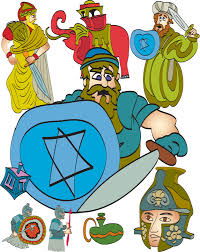









 He also gave promises of strength, hope and safety to the nation of Israel, who would steward the promise of the Messiah for many years to come.
He also gave promises of strength, hope and safety to the nation of Israel, who would steward the promise of the Messiah for many years to come. 




